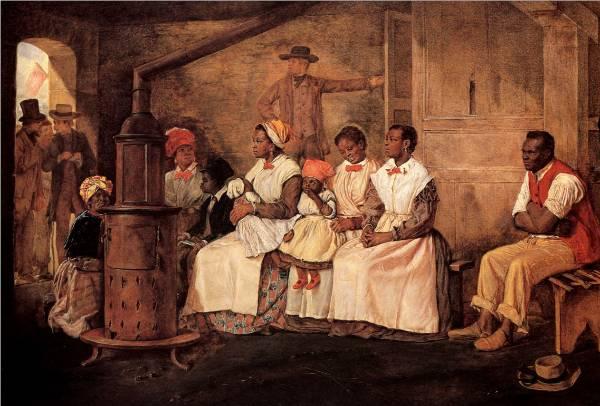Before emancipation, slaves had few avenues to freedom, aside from escape. An upcoming book, “Redemption Songs,” reveals how nearly 300 Missouri slaves fought for their freedom in court.
The best-known case of freedom litigation—Dred Scott—lost big. Not only did Scott fail, but the landmark 1858 Supreme Court ruling denied all black people the rights of citizenship, prohibited the federal government from banning slavery, and pushed an already divided nation toward civil war.
Although Dred Scott has become a defining moment in American history, according to Lea VanderVelde, author, and law professor at the University of Iowa, the case was an exception, not the rule.
Dred Scott Decision Anomaly
“The Dred Scott case was a complete reversal, a turnaround, and that’s one thing that these discoveries demonstrate is how much of a 180 degree shift that particular ruling was from something that had been going on for 30 years in St. Louis,” she said.
VanderVelde stumbled upon the details of this forgotten history while working on her previous book, “Mrs. Dred Scott,” which tells the story of how Harriet Scott filed a freedom suit along with her husband.
Great-Great Grandchildren
VanderVelde wondered if other Missouri slaves had filed similar suits. Her curiosity led her to a woman who was a member of the same church as Dred Scott’s great- great grandchildren. The woman worked as a data processor at a St. Louis court house, and had spent years amassing an impressive collection of hither to unknown Missouri Supreme Court decisions.
VanderVelde later found other documents which revealed details about witnesses. depositions, and testimony. With the help of a state archivist, she spent seven years scanning and uploading the records online.
Phenomenal
“Slaves were actually assigned lawyers to represent them because they were poor, because they were impoverished, and that’s phenomenal. That doesn’t even happen today, but it happened then, and it happened for slaves,” she said.
Rule Reversal
Freedom lawsuits were granted in other states, but Missouri was compelled to give slaves a legal path toward freedom. The “Missouri Compromise” federal mandate was a requirement for Missouri to join the Union as a slave state. It came from an agreement between pro- and anti-slavery factions in Congress about regulating slavery in the Western territories.
VanderVelde’s book profiles 12 examples to illustrate the range of cases brought to the Missouri courtroom. In one, an Illinois family living on their own land is kidnapped into slavery. Another describes a Native American family that was illegally enslaved for two generations.
Arguments for Freedom
“It’s really about how 300 people figure out the circumstances of their lives and make arguments for their freedom in very different ways,” said VanderVelde.
Viewed in this context, Dred Scott’s case reveals another layer of injustice. By the time Scott’s suit was filed, Missouri had already granted freedom to hundreds of slaves. Evidence from other trials suggests Scott’s should have been an easy win.
Scott’s biggest obstacle to victory was timing. In the early days of its statehood, Missouri was far from the abolitionist turmoil erupting in the east, so granting freedom to a few slaves posed little threat to the status quo. However, Scott’s case coincided with news of abolitionist influences creeping closer to Missouri. A panicked court changed course, and closed the door on further suits for good.
“It was only after Missouri became surrounded by free states—Illinois, and Kansas, which was going in a free state direction—that the Missouri Supreme Court seemed to panic. And in that panicking they decided to reverse their ruling,” said VanderVelde.
Oxford University Press will publish “Redemption Songs,” in spring 2014.






